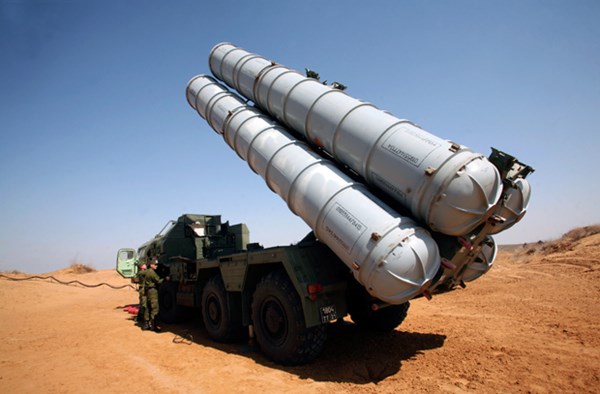Russian media: Israel has found ‘antidote’ to S-300 missile systems in Syria
The successful testing of the Arrow 3 missile has not gone unnoticed by the patriotically inclined Russian community, which cares about the success of Russian weapons in Syria, and is also (in line with Soviet tradition) alarmed by the achievements of the Jewish state in its fight against the Arab neighbors that seek to destroy it.
Svobodnaya Pressa, a news outlet run by the famous Russian writer and patriotic activist Zakhar Prilepin, published an article titled “Arrow 3 versus S-300: Now Israel can handle all Russian rockets and even space”. The subheading is even more promising: “Tel Aviv prepares to become the sole master of the Middle East”.
Although it is not entirely clear why it is Tel Aviv specifically that is preparing to become the sole master of the region and not, say, Ashdod or Haifa, this assertion can be attributed to the poor geographical knowledge of the article’s author, Lyubov Shvedovaya.
Overall, the article is complimentary and even flattering of Israel. “After obtaining the Arrow 3, Israel is close to completing the creation of its unique multi-tier anti-air and anti-missile defense system. This will make the airspace of Israel and the adjacent regions virtually impenetrable, or rather, they will be under Tel Aviv’s complete control,” she writes, again failing to explain why Tel Aviv and not some other Israeli city would control the regional airspace. Perhaps the Russian journalist knows something that the Israelis themselves don’t.
Of course, this news has negative repercussions for Russia, which could find the supremacy of the Jewish state problematic, the article notes.
“For example, the Syrians will be seriously restricted in their ability to use the S-300s to repel another IDF air raid. Furthermore, Israel now has the antidote to virtually all types of Russian missiles. And indeed, who are such technologies created against, if not against countries with a powerful arsenal? For example, it’s hard to imagine that missiles that can fly into space are needed to oppose Iran or Syria. Tehran and Damascus do not have such technologies, nor are they expected to develop them,” Shvedova develops her idea.
The article cites a comment from the political scientist and orientalist Oleg Gushchin. What he says sounds contradictory – initially he accuses Israeli Prime Minister Benjamin Netanyahu of bragging, saying that: “He could be talking about his ‘miracle rockets’ in order to boost his ratings among the Israelis. There are still going to be snap elections as a result of the failure of Netanyahu and his supporters in the elections in April”.
However, immediately afterwards, Gushchin shows that he actually takes the reports on the Israeli missiles seriously. “Secondly, there is a possibility that Israel intends to take control of space. If a missile flies higher than 100 kilometers, it is theoretically capable of shooting down satellites. It’s not only Russia and America that have satellites orbiting up there, there are many other countries too,” he explained.
Then the orientalist describes why he believes Israel really needs them: “But I consider something else to be the most important reason. The show must go on! And if Israel stops, it will be extremely difficult to return to its previous level. This concerns both politics and technology. For example, if a pilot takes a break in his career, in order to resume he will have to do serious running-in, so to speak. The same applies in the case of Israel and Iran.”
He concludes by reassuring his Russian readers that Israel is an enemy of the Arabs and Persians, but not of the Russians.
“But with respect to Russia, I don’t think it poses any kind of threat to her. Indeed, the Syrians may experience the power of the new weapon, the Iranians and so on, but there are good relations between the Russians and Israel, so why would they simply ruin them? It wouldn’t be worth it,” the expert remarked.
This news has been reproduced in various formats by the Russian news outlets Lenta.Ru and Avia.Pro, which have informed their readers that “Israel has found an antidote to the Russian S-300”.
